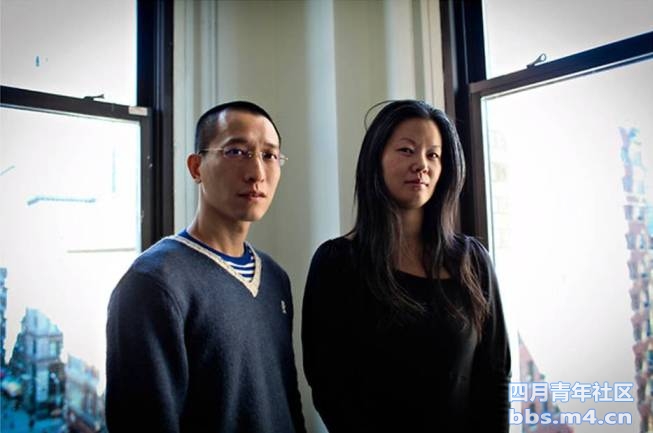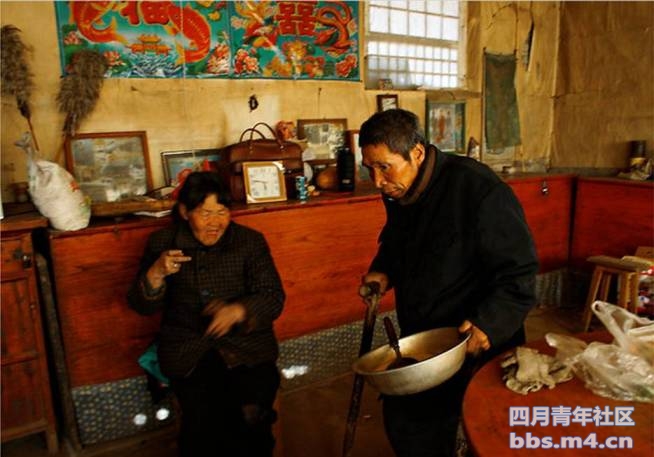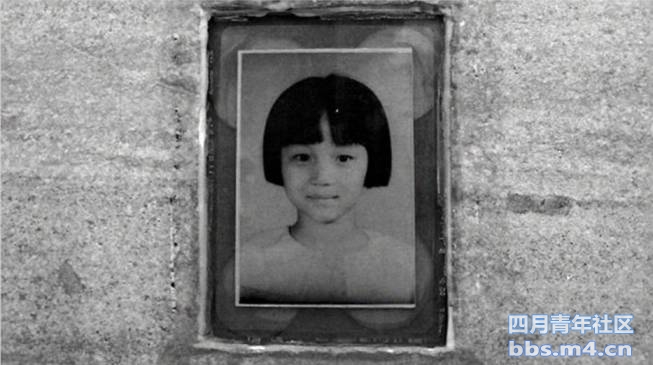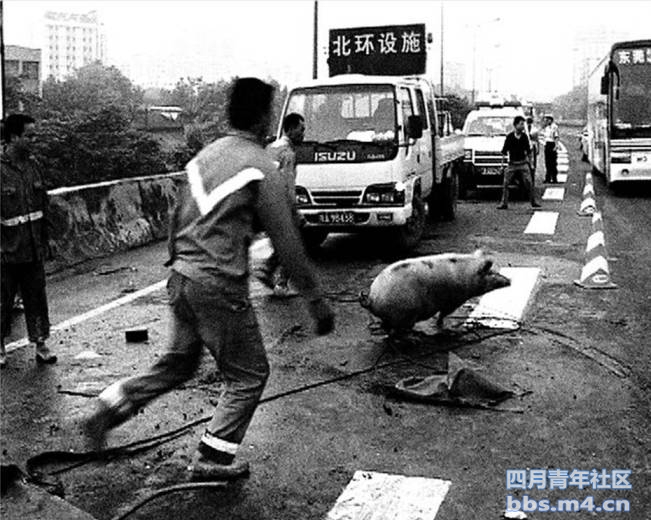【中文标题】不独立国度的独立电影
【原文标题】Indie Films From a Land Short on Independence
【登载媒体】纽约时报
【原文作者】LARRY ROHTER
【原文链接】http://www.nytimes.com/2011/02/18/movies/18undergound.html
五位中国导演的作品将出现在1月份开幕的现代艺术博物馆纪录片双周展中,展期从1月17日到3月3日。以下是一些参展影片的图片。

中国导演黄伟凯和美国发行商Karin Chien。

厉百程和他的妻子石珍珠在《算命》中的剧照,导演徐童。影片关注了一项正在消失的中国民间传统习俗。

《克拉玛依》剧照,导演徐辛。长达6小时的影片全面检视了中国西部偏远城市发生的一起火灾事故,323人在大火中丧生,大部分是学生。

《克拉玛依》中怀抱死者肖像的父母。

《现实是过去的未来》剧照,导演黄伟凯。影片是从1000多小时的视频中剪辑拼凑而成,大部分拍摄者都是非职业人士,拍摄地点包括广州和其它珠江三角洲城市。

作为一家前卫舞蹈团的领队,李凝在《膠带》中记录了他自身的艺术挣扎。

李凝在《膠带》中的剧照。
作为一个团体,他们给“独立电影”赋予了崭新、真实的含义。在一个所有电影都必须经过官方批准才可以公开上映的国家里,5位中国导演被迫在一个灰色地带进行他们的工作。他们作品即将出现在周五开幕的现代艺术博物馆(MOMA)纪录片双周展中
电影节的主办人Sally Berger在去年秋季访问过中国,她说:“你必须要有极大的勇气和热情来完成没有资金来源的影片,而且这些影片没有希望在你自己的国家中上映,除非是在监管之外的灰色地带。他们都是专业的、探索性的电影制作人,具有很强的审美观念。他们的影片中充满了紧迫感和对变化的诉求,尽管他们知道,自己的影片在海外上映的可能性要比本土上映的可能性大。”
过去十年中出现的中国独立影片几乎没有公然表现政治内容,也没有直接挑战共产党的执政,但是对贫困、污染、非正义、迅速城市化和个人独立的挣扎等问题的关注,让这些影片背负了颠覆和质量低劣的名声。同时也让当权者警惕起来,堵住发行渠道,断绝官方的资金支持。
在MOMA中上映的影片中,最有可能引起关注的是徐辛的《克拉玛依》。长达6小时的影片全面检视了中国西部偏远城市发生的一起火灾事故,323人在大火中丧生。死者大部分是学生,他们当时被带到友谊馆为前来访问的高层官员表演节目。这些官员的详细信息没有在任何官方记录中被披露,他们通过唯一没有上锁的门毫发无伤地逃生。
导演徐先生曾经是一名艺术教师,他在接受采访时说:“事件中的一句话让我极为关注,是有人向学生们下指示:‘学生们不要动,让领导先走。’这句话在我的心灵中留下了创伤。” 他即将离开北京前往纽约,出席电影节开幕式。
另一部影片——徐童导演的《算命》——悲天悯人地关注一项即将消失的民间传统。一家前卫舞蹈团的领队李凝,在《膠带》中记录了他自身的艺术挣扎。导演贾樟柯经常游移于官方世界(比如《三峡好人》)和独立电影之间,他参展的影片是《海上传奇》。这是一部纪录片和虚构元素混合的作品,用怀旧的视角讲述上海近些年的变化。
欧柏林学院的教授、《为上映而改编:中国当代小说和影视作品的文化政治因素》一书作者Hsiu-Chuang Deppman说:“你可以看到,这些独立电影人有他们自己的思维关注层面,他们需要用自己的作品来达成社会使命,仗义执言、代表下层社会和边缘人群、暴露腐败等等。社会使命感让他们有动力和激情来大胆地探索禁区。”
尽管中国的大部分独立电影都被视为纪录片,但也有一些像贾先生的作品一样,并未遵循西方传统的拍摄方式。他们在作品中熔合了一些实验性的技巧,有时候甚至完全脱离了叙事性。38岁的黄伟凯在涉足影视之前学习过风景画,他说:“在我看来,纪录片、虚构情节的影片和试验性影片界限很模糊。”
黄先生的《现实是过去的未来》即将在周五上映,影片是从1000多小时的视频中剪辑拼凑而成,大部分拍摄者都是非职业人士,拍摄地点包括广州和其它珠江三角洲城市。他拿到拍摄脚本之后,按自己的思路从中选择、编辑、排序,总共用了不到1个小时。
影片中充满了城市的喧嚣:猪在拥挤的高速公路上闲逛;自来水管爆裂;洪水涌上街道;警察殴打小贩;被遗弃在垃圾箱中的婴儿。当被问及他制作影片的过程时,他说:“这就像一个厨师,出门去采购材料,然后自己决定如何使用这些素材。”
很多中国独立电影人通过dGenerate影业公司在美国发行他们的影片,这家公司由美籍华人制片人Karin Chien在2008年成立,她曾经发行过美国独立影片《The Exploding Girl》。有一次,她在纽约大学出席了《三元里》的演出活动,一群画家和视觉艺术家(其中就有黄先生)用各种元素生动地展示出,城市生活是如何蚕食传统的乡村生活。纽约大学曾经赞助了“胶片中国”双年展。在那时,她决定深入接触中国电影。
她说:“这种混合了形象和音乐,而又没有旁白和对话的方式,让我想起了‘Koyaanisqatsi’。”她指的是1982年由Godfrey Reggio和Philip Glass合作拍摄的试验性影片。“美国观众在中国海外经常看到历史题材的古装剧,很难设想还有比这种表演更加与此不同的了。”
Chien女士的公司迄今已经在海外发行过38部中国独立影片,大部分发行对象是电影团体、高校和电影节。她说,有时候,为了把影片运出中国,“我们想了很多有创意的运输方式”,比如让几个导游随身携带,以避开出口许可证等限制措施。
44岁的徐辛说,他希望有人能帮忙让他的影片在中国剧场或中国电视上出现。但是,他又说,拍摄这些影片要比让它们上映更加重要。“我认为,我的工作就是补充历史,补充官方的历史。了解真相的人并不多,为未来准备好现实的记录是一名纪录片工作者的基本使命。”
原文:
The work of five Chinese directors will be featured beginning on Friday in the Museum of Modern Art’s Documentary Fortnight, which runs from February 17-March 3. Following are images from the films featured in the program.
The Chinese director Huang Weikai and the American distributor of his films, Karin Chien.
Li Baicheng and his wife, Pearl, in a scene from "Fortune Teller," directed by Xu Tong. The film looks at a vanishing Chinese folk tradition.
A scene from "Karamay," directed by Xu Xin, a six-hour examination of a fire in China's remote far west in which 323 people perished. Most of the dead were school children.
Family members holding portraits of their deceased children in "Karamay."
A scene from Huang Weikai's "Disorder," a piece of bricolage drawn from more than 1,000 hours of video, shot in large part by non-professionals working in Gugangzhou and other cities in the Pearl River delta of southern China.
Li Ning, the leader of an avant-garde dance troupe, has documented his own artistic struggle in "Tape."
Li Ning in another scene from "Tape."
As a group they give a new and truer meaning to the phrase “independent film.” In a country where all movies must obtain official approval to be exhibited commercially, the five Chinese directors whose work will be featured beginning on Friday in the Museum of Modern Art’s Documentary Fortnight are forced to operate in a peculiar gray zone.
“You have to have an awful lot of energy and passion to make films with no funding and no prospect of having them seen in public in your home country except under the radar and off the grid,” said Sally Berger, the curator of the festival, who visited China last fall. “These are sophisticated, experimental filmmakers with a strong aesthetic sense, making films filled with a sense of urgency and change, even though they know they have a better chance of having their work seen abroad than at home.”
Few, if any, of the Chinese independent films that have begun appearing over the last decade or so are overtly political or dare to challenge the authority of the Communist Party directly. But their focus on issues like poverty, pollution, injustices, rapid urbanization and the individual’s struggle for autonomy gives many of them a subversive, questioning quality that alarms those in power and closes off the channels of official support and money.
Of the films to be shown at MoMA the most ambitious may be Xu Xin’s “Karamay,” a six-hour examination of a fire in the remote far west of China in which 323 people perished. Most of the dead were schoolchildren brought to the local Friendship Theater to perform for a visiting group of high-ranking officials, who, in a crucial detail not reported in the official accounts, escaped the blaze unscathed through the single door that was not bolted shut.
“One sentence centered my attention on this incident, and that was the instruction to the students to ‘stay behind, don’t move, let the leaders go first,’ ” Mr. Xu, a former art teacher, said in a telephone interview from Beijing before leaving for New York, where he will appear at the film’s showing. “That left a mark on my psyche.”
Another film, Xu Tong’s “Fortune Teller,” looks sympathetically at a vanishing folk tradition, while Li Ning, the leader of an avant-garde dance troupe, documents his own artistic struggles in “Tape.” The director Jia Zhangke, who alternates between the worlds of official (like “Still Life”) and independent cinema, will be represented by “I Wish I Knew,” a hybrid of documentary and fictional elements that examines the recent transformation of Shanghai with a nostalgic eye for that city’s past.
“You can see that these independent film directors do have ideological concerns, that they have a social mission they need to accomplish with their films, speaking out or standing up for the underprivileged or marginal and exposing corruption,” said Hsiu-Chuang Deppman, author of “Adapted for the Screen: The Cultural Politics of Modern Chinese Fiction and Film” and a professor at Oberlin College. “That social mission gives them the drive and the passion to be bold and experimental and fearless.”
Though the bulk of independent films produced in China are described as documentaries, some of them, as Mr. Jia’s film indicates, do not follow the conventions of the form as practiced in the West. Instead they mix in experimental technique, sometimes eschewing narrative altogether. “The borders between documentary, fictional and experimental films are very blurred for me,” said Huang Weikai, 38, who trained as a landscape painter before turning to cinema.
Mr. Huang’s “Disorder,” to be shown on Friday, is a piece of bricolage drawn from more than 1,000 hours of video, shot in large part by nonprofessionals working in Guangzhou and other cities in the Pearl River delta of southern China. They made their footage available to Mr. Huang, who then chose, edited and ordered the sequences he wanted down to just under an hour.
“It’s like a chef who goes out to the market to get ingredients,” he explained when asked about the process he used in making the film, which shows scenes of urban chaos in which pigs wander onto a congested expressway, water mains burst, streets flood, the police beat vendors, and a baby is found abandoned in a garbage-strewn lot. “What he makes of those ingredients depends on him.”
For distribution in the United States many Chinese independent filmmakers have turned to dGenerate Films, a company founded in 2008 by Karin Chien, a Chinese-American film producer whose credits include American indie movies like “The Exploding Girl.” It was after attending a screening of “San Yuan Li” — in which a group of painters and visual artists, Mr. Huang among them, combined to create a vivid depiction of urban sprawl overwhelming traditional village life — at New York University, which sponsors the biennial Reel China festival, that she decided to branch into Chinese film.
“The way it mixed images and music, without dialogue or narration, reminded me of ‘Koyaanisqatsi,’ ” she said, referring to the 1982 experimental film collaboration between Godfrey Reggio and Philip Glass. “It would be hard to imagine anything more different from the costume dramas most Americans are used to seeing out of China.”
Ms. Chien’s company now distributes 38 independent Chinese films abroad, mostly to film societies and universities and for showings at festivals. In some cases, she said, to get the films out of China, “we end up inventing some very creative routes of transmission” involving networks of couriers to evade export licensing and other controls.
Xu Xin, 44, said he hoped someday to have his films exhibited in Chinese theaters and on Chinese television. But, he added, making them is even more important than getting them shown. “I think my job is to supplement history, the official history,” he said. “Not many people are aware of the truth, of things that really happen, so to make a record for the future is the basic duty of a documentary filmmaker.” |